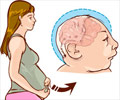Recent research has revealed that men who undergo a vasectomy reversal could be at an increased risk of producing abnormal sperm and probably even lead to birth defects in children.
Recent research has revealed that men who undergo a vasectomy reversal could be at an increased risk of producing abnormal sperm and probably even lead to birth defects in children.
The research was conducted by scientists at Chulalongkorn University, Bangkok, Thailand. The study was conducted on men who had undergone vasectomy, a procedure which does not interfere with sperm production but which causes it to remain separate from their semen.A study of their ejaculatory fluid has revealed that these men had significantly higher rates of abnormal chromosomes than men who had not undergone vasectomy. The patients demonstrated high rates of chromosomal aneuploidy, where atypical numbers of chromosomes or sets of chromosomes appear within a cell's nucleus as well as higher rates of diploidy, where two sets of chromosomes appear in the nuclei of sex cells.
According to Nares Sukchareon, researcher at the university's Department of Obstetrics and Gynecology 'The rate of abnormality was about 10 times higher than the aneuploidy and diploidy rate in normal fertile men. This raised a lot of questions, so we decided to study the rates of these abnormalities in ejaculated sperm after vasectomy reversal. If these sperm continued to have a high rate of aneuploidy and diploidy, we would know that obstruction by vasectomy must affect spermatogenesis in the longer term.'
However discrepancies in abnormalities in the sperm and the time lapsed since the vasectomy reversal was completed, and the amount of time the vasectomy was in place was noted.
'This study raises a lot of questions. Is the abnormal spermatogenesis reversible, and if so, how long will it take before things get back to normal?' Sukchareon asked. He also considered whether Such abnormalities would be carried over to the offspring or not.
While Sukchereon concluded that these results have not yet indicated that babies born to men who have undergone vasectomy reversals will have birth defects he proposed the need for caution to avoid dangers. He said,' this is still uncertain, and until we know more, it would probably be safer to freeze ejaculated sperm before vasectomy. We need a lot more evidence and research on this issue before we can be certain of avoiding the dangers.'
Advertisement
'We are collecting sperm during vasectomy reversal operations and will compare the aneuploidy rate of these and of the sperm we will collect each month in the future from the same men,' Sukchareon continued. 'This will help us understand what the dangers are. But, in the meantime, I think that doctors need to be very aware of the possibility that babies born after vasectomy reversal may have problems.'
Advertisement










